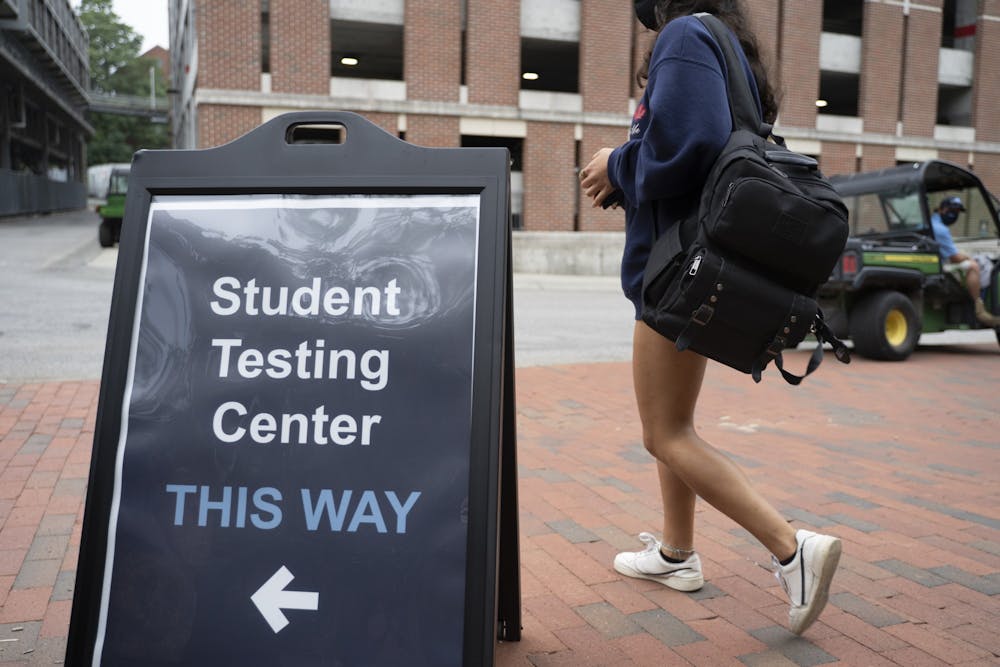The UNC COVID-19 dashboard will now only reflect positive and negative test results from Campus Health and testing partners with UNC Hospital Respiratory Diagnostic Center, according to a campus-wide email from Provost Bob Blouin Tuesday.
These changes to how the data is reported stem from inaccurate information on the dashboard, said Ken Pittman, the executive director for Campus Health Services. This was brought to Campus Health’s attention by the Orange County Health Department and the N.C. Department of Health and Human Services.
“We were essentially providing two pieces of information,” Pittman said. “The dashboard showed all of the positive results our students were getting — regardless of where they were tested, and the total number of tests that were performed, as we had no way of knowing how many students were getting tested at outside entities.”
Now this new practice is affecting how the data from previous weeks is reflected in the dashboard, and students are concerned about how these numbers are being used by the school.
Positive rate changes
The positivity rate on the COVID-19 dashboard is now adjusted to only include positive and negative test results from UNC.
“The dashboard was more of a general estimate of what our positive rate was as opposed to our actual rate,” Pittman said. “It had a general estimate of what the positive rate was, but it was not as epidemiologically sound or accurate.”
Prior to this change, when students reported their positive COVID-19 results from tests administered off campus to Campus Health, those positive test results were factored into the positivity rate. But the only source of negative tests results came from Campus Health.
“When (my result) turned out to be positive, I just called Campus Health,” said first-year Rachel Reynolds, who got tested off campus. “All of my suitemates got tested, six of us were positive but two were negative. I was kind of thinking that obviously the two who were negative didn’t report it to Campus Health, but I kept getting calls about contact tracing. I felt like it just kind of skewed the data.”



